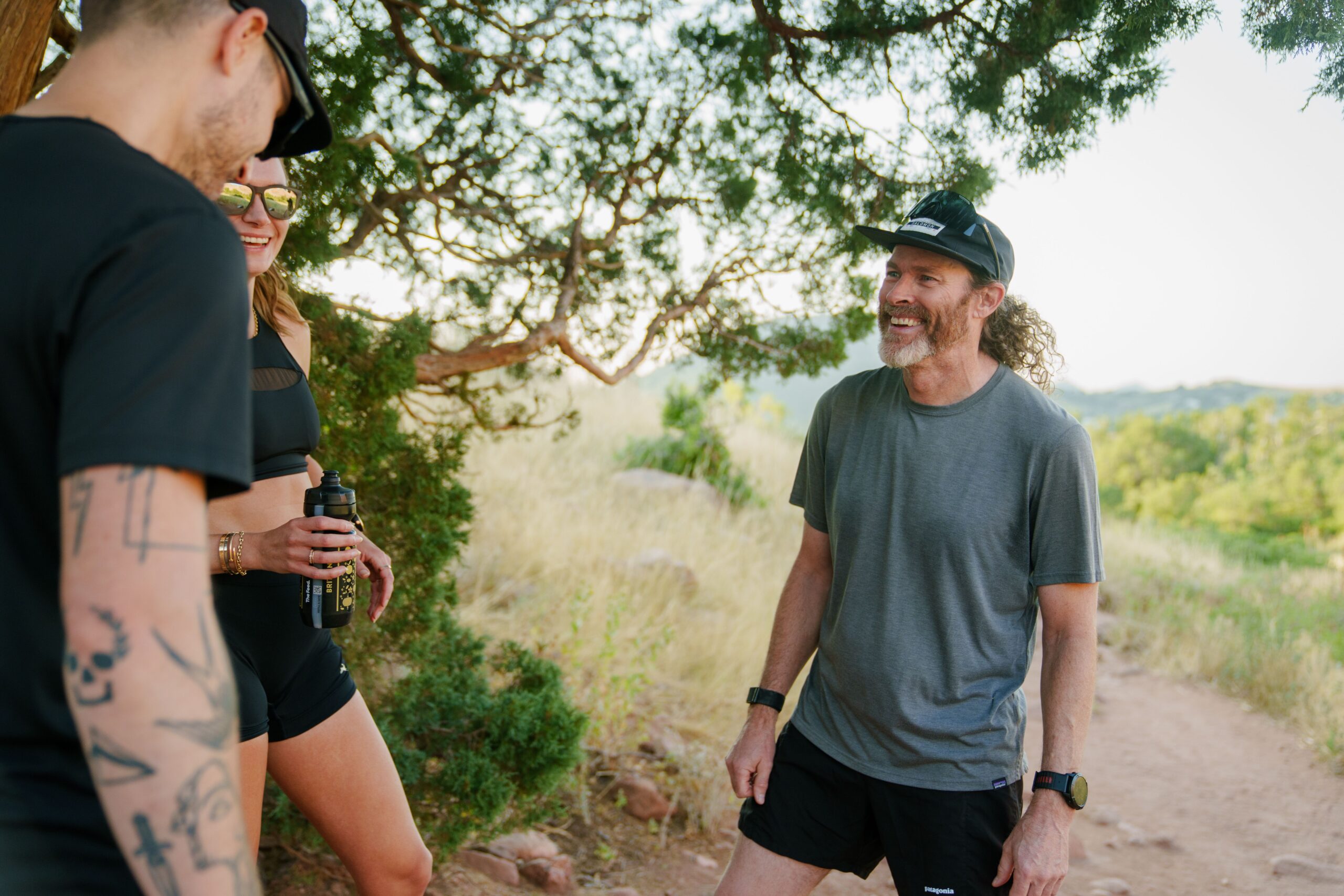Joy and Brian McCulloch are the husband and wife team behind the southern California-based Big Wheel Coaching. Joy was a high school P.E. teacher and professional mountain biker. Her vision behind Big Wheel Coaching was to bring P.E. to adults by providing structure, feedback and accountability to athletes. Brian joined the business in 2016 and has over 15 years of professional road, mountain bike and gravel racing experience, and he currently races for the Bianchi Gravel Team.
Big Wheel Coaching has developed a Race Day Ready program to help their athletes hit collaborated goals. Joy and Brian develop a plan — many times a physical plan — to achieve the desired objective while also preparing for various aspects they will encounter during a race that might be unique to the course or new to the racer. In addition to the planning, they attend the races to guide mini-clinics on the days before or day of the race to help guide clients and, at times, other racers to be aware of situations they may encounter on the course. Or to get off the line with an opportunity for success.
Listen in as they talk about what they’ve found essential to help racers successful in a race day “stadium” that many have limited experience with or limited occasions to practice.
Stand-Out Quotes
“When we started looking into 2022, we’re like, well, what theme is going to help drive our business and help our athletes the most? And that’s where Brian came up with the idea of — you know, we’re working with athletes that are now getting back into the trenches of racing, and they’re so terrified. It’s like [we] all came out of retirement and are like, “I’m gonna go race my first like big IRONMAN or criterium or road race, and I haven’t towed a line since 2019.”” — Joy
“We have a really good relationship with local and regional event promoters…I’ve been going to their races for a long time. I just called them, and I asked them, how is business for you guys? They would say, man, you know, it’s really hard to get people to stay. Everybody wants to come in, they do their event and they leave. And so what we were thinking about was how can I provide value to them and enhance our athletes’ experience…The way that we look at the world is there’s no stadium for what we do. There’s in your local town, there’s a ball field, there’s a soccer [field], there’s all the stuff, but there’s no place to do what we do except on the roads or on the trails. So these race promoters, they create the stadium well our athletes need goals if they go away or there’s some issue we have a problem right, so I want to enhance their business. We are aligned. We want to help them right, and by us helping them, it helps us.” — Brian
“Over the years of teaching, skills clinics or one-on-one stuff, like if you can have three things, okay, that as a takeaway, as an athlete that you can quickly implement. And we keep it very simple especially, like think about turning a switchback on a mountain bike. Number one thing is your line of sight, okay, just start there.”
Joy McCulloch
“With Race Day Ready was we wanted to give people an insight to what really well-developed athletes do okay and again i know all your years of racing you we maybe take it for granted that you look at the course you look at the layout where the feed zones are you look at where’s that first climb what’s the wind likely going to be is there a choke point on the road something like that okay and a lot of especially with all the influx of new gravel riders they haven’t had that road experience where it’s like if you don’t get to 30k where that climb is and if you’re not in the first 10 it’s over right so there’s a couple layers here that i would want to kind of talk through for anyone whether they’re a coach or an athlete that are listening but the thing that’s important to us is starting with what does the route look like and then we start overlaying your goals and your fitness and that’s where the individual understanding of the athlete and the coach and the coaches experience is so important .” — Brian
“Coming from the road, one thing that I would like to see happen more in gravel events is [to] have kind of like appetizer-type events. Not that every gravel event has to be the hundred-miler. We need more, like, and you’ll appreciate this, but if Paris-Roubaix and Tour of Flanders are the Classics, we need more semi-classics. Why? Semi-classics so that we can learn. We can make mistakes. Make the changes and move forward. And so that, to me, is why the debrief is so important and why we wanted to go to events to help our athletes be successful because there’s so many lessons to be learned there. Not just nutrition. Not just pacing. Sometimes it’s equipment. You tried something, and you thought, hey, I thought these narrower tires were going to roll faster. Surprise! When you get a flat, nothing rolls fast, right? …all endurance sport is like this, but certainly, cycling is a very, very complex sport, and it takes a sophisticated understanding of self, equipment, event, the conditions of the road, all of those things to be successful .” — Brian
Resources
Big Wheel Coaching
Instagram
Facebook
@joyonbike and @bmconbike




